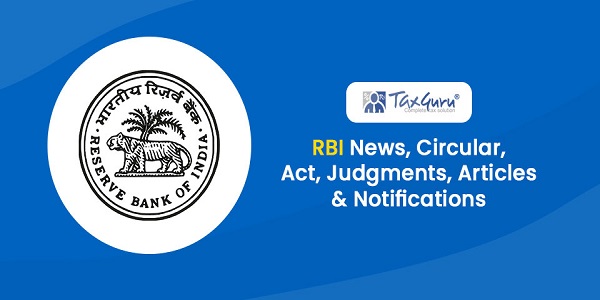It is beyond any periphery of argument that if the law is the second important pillar of modern civilization apart from science and technology, then it is too universal truth that correct and proper interpretation of laws is the indispensible and solitary factor for correct application of law by the state on its subjects and establishing the rule of law without which no nation can achieve its desired goal in all aspects of a modern state and said mammoth duty has been assigned to the higher judiciary which is only competent entity of state to interpret the law. In modern state laws are enacted by the parliament and they are implemented by the executive but ultimate duty and power lies on judiciary to ensure the proper and just implementation of laws enacted by the parliament or state legislature. Therefore the Supreme court is the guardian of our constitution which is the mother of all laws and it is the gubernatorial duty of apex court to check the every implementation of law in accordance with letter and spirit of constitution.
Interpretation is the heart and soul of legal jurisprudence and as held by Hon’ble apex court in District Mining Officer vs TISCO (2011) that “… A statute is an edict of the Legislature and in construing a statute, it is necessary, to seek the intention of its maker. A statute has to be construed according to the intent of them that make it and the duty of the Court is to act upon the true intention of the Legislature. If a statutory provision is open to more than one interpretation the Court has to choose that interpretation which represents the true intention of the Legislature. This task very often raises the difficulties because of various reasons, inasmuch as the words used may not be scientific symbols having any precise or definite meaning and the language may be an imperfect medium to convey one’s thought or that the assembly of Legislatures consisting of persons of various shades of opinion purport to convey a meaning which may be obscure.
It is impossible even for the most imaginative Legislature to forestall exhaustively situations and circumstances that may emerge after enacting a statute where its application may be called for.
one the less, the function of the Courts is only to expound and not to legislate. Legislation in a modern State is actuated with some policy to curb some public evil or to effectuate some public benefit. The legislation is primarily directed to the problems before the Legislature based on information derived from past and present experience. It may also be designed by use of general words to cover similar problems arising in future. But, from the very nature of things, it is impossible to anticipate fully the varied situations arising in future in which the application of the legislation in hand may be called for, and, words chosen to communicate such indefinite referents are bound to be in many cases lacking in clarity and precision and thus giving rise to controversial questions of construction. The process of construction combines both literal and purposive approaches. In other words the legislative intention i.e., the true or legal meaning of an enactment is derived by considering the meaning of the words used in the enactment in the light of any discernible purpose or object which comprehends the mischief and its remedy to which the enactment is directed…”
if we closely pursue the interpretational trend of our higher judiciary in taxation matter particularly in direct taxation which demands most interpretation among all laws being most complex law then we will see that whether are apex court, High courts or tribunal steadfastly followed the three dominating interpretational guidelines being derived from common law as such intention of legislature and strict interpretation of taxing statue following the famous observation of LORD CARINS: “If the person sought to be taxed comes within the letter of the law he must be taxed, however great the hardship may appear to the judicial mind to be. On the other hand, if the Crown seeking to recover the tax, cannot bring the subject within the letter of the law, the subject is free, however apparently within the spirit of law the case might otherwise appear to be. In other words, if there be admissible in any statute, what is called an equitable construction, certainly, such a construction is not admissible in a taxing statute where you can simply adhere to the words of the statute. VISCOUNT SIMON quoted with approval a passage from ROWLATT, expressing the principle in the following words:
“In a taxing Act one has to look merely at what is clearly said. This is no room for any intendment. There is no equity about a tax. There is no presumption as to tax. Nothing is to be read in, nothing is to be implied. One can only look fairly at the language used.”
Thirdly that court can only interpret the law as being edict of legislature but can not expand the scope of law or insert new words or phrases so as to change the original enactment but if it is found that the literal interpretation of a statute or section leads to absurdity or being impossible to achieve the object of legislation then court can formulate a new interpretation so as to achieve the object of said legislation.
Now on the touchstone of these three interpretational guidelines being strictly followed by our judiciary in direct taxation cases till 2021 mostly, the recent deliverance of some judgements by the apex court, High court and ITAT has posed a serious question on judicial discipline as being enshrined in Article 145 of our constitution. Next what these developments which clearly invite controversy being going totally against the three settled rules of interpretation on taxation matters? First is the in 2022, Hon’ble apex court judgements in CHEMVEST CEMENT and AHMEDABAD URBAN DEVELOPMENT AUTHORITY cases. In CHEMVEST CEMENT , before apex court question of law was whether employees contribution to the ESI, EPF is allowable deduction u/s 36 if the said contribution is deposited before due date filing of original return u/s 139(1) of Income Tax Act? while interpreting the said section being read with SECTION 43B, Hon’ble bench distinguished the law for employer contribution and employees contribution by going by of literal meaning of section 43B and in the course of said literal interpretation Hon’ble Bench arrived to the conclusion that by the strict and literal interpretation of section 43B, it is crystal clear that the intention of legislature to give benefit of deduction of EPF deposit before filing of original return is applicable only on employers contribution and not in employees contribution. Therefore no deduction is allowable on belated employees contribution. But such interpretation appears absurd since in practical the actual liability of both contribution lies upon the employer and in practice both the contribution are made on single by the employers after collection and in EPF office both are tabulated by single challan in most. Although apex court went by separate debit of two contribution in profit and loss account but in reality said judgement will pose a serious problem to the business men in practical implementation which could never be intention of our legislatures. So this absurdity on implementation could never be intention of the legislature but still apex court went by rule of literal interpretation in academic spirit without considering the practical implication of its order in commercial world in-spite of clear prohibition by common law to pen such interpretation leading to impossibilities of implementation of law being interpreted by the court. Same is the case of AHMEDABAD URBAN DEVELOPMENT ATHORITY judgements. So these peculiar orders of apex court in clear derogation of interpretational principles pose a big question of future of our jurisprudence.
Now come to the Calcutta HC order in SWATI BAJAJ and a recent order by ITAT, PUNE Bench on interpretation of section 68 on share capital and penny stock. Both the order go in favor of the department on application of PREPONDERANCE OF PROBABILITY theory strangely by the judiciary which is actually imparted by the revenue which is what is apparent is not real. So by accepting the said theory both court overruled all the documental evidences furnished by the appellants including clinching evidences like bank statement, ROC documents, IT return and despite all appellants fulfilled all the conditions laid by section 68 which are basic requirements as per strict interpretation of taxing statue by which our judiciary is bound as per their own previous pronouncement acted totally in derogation of established rule of interpretation and imparted a strange theory not permissible in taxing jurisprudence.
So from aforesaid deliberation two things are crystal clear. One is while apex court clearly transgressed the natural justice by not exercising its inherent power to formulate a reasonable interpretation of law being practicable and in accordance with common law by taking unnecessary refuge on strict interpretation of statue while its some subordinate courts have gleefully overruling the strict interpretation of law and apex court settled law that one can arrange his state of affair in taxation matter within the lawful way however prejudicial it may be for revenue until it is colorable device of tax evasion (AZADI BACHAO ANDOLAN) and right of tax planning of assesses. Both have acted strangely throwing all principle of jurisprudence which is heart of rule of law in to air. So in my opinion year 2022 is a year of gross judicial indiscipline in derogation of intention of our great constitutional makers and a very dangerous sign for RULE OF LAW.
























